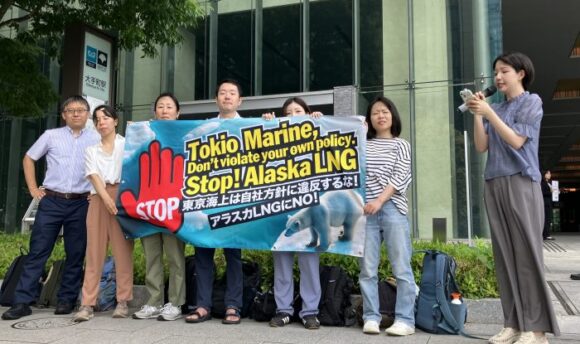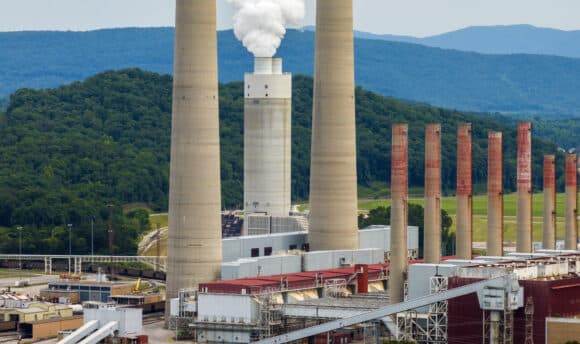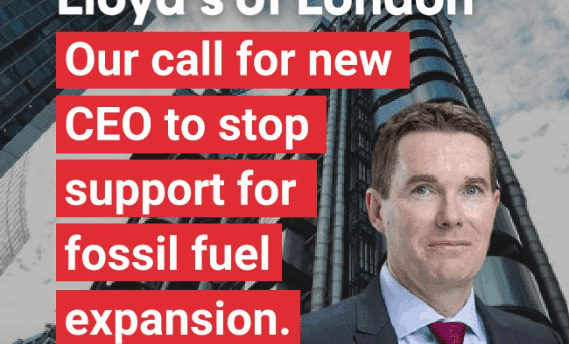Arch Capital Group Ltd and AEGIS London join the 19 (re)insurance companies ruling out the controversial East Africa Crude Oil Pipeline (EACOP) project.
Arch Capital Group Ltd responded to ongoing pressure on their insurance business by ruling out insurance for the East Africa Crude Oil Pipeline (EACOP). A statement issued by the company follows sustained pressure on Lloyd’s of London managing agents to rule out underwriting EACOP, and days after Money Rebellion spilt fake oil outside Arch’s London offices.
Patrick Palmer, Head Of Marketing and Communications at Arch Insurance International, confirmed, in an email to Money Rebellion and Coal Action Network: “Arch Capital Group Ltd. can confirm, on behalf of its underwriting operations, that it has not and will not issue any insurance policies covering the East African Crude Oil Pipeline.”
Arch Capital Group Ltd had been targeted by people across the world, from a range of groups, for over two months exposing the numerous climate, environmental, social risks and human rights violations associated with the project. Thousands of emails had been sent to staff asking them to raise the issue with senior management, hundreds of supporters of the #StopEACOP coalition and Coal Action Network, called Arch to recommend they rule out EACOP, and regular protests have been held at Arch’s offices.
In the same week, AEGIS London also ruled out the controversial project as the project doesn’t meet their ESG policy. The total number of insurers ruling out EACOP now stands at 21. Both companies are members of the Lloyds of London insurance marketplace where it has been suggested that the companies behind EACOP (TotalEnergies and CNOOC) are seeking insurance.
The East Africa Crude Oil pipeline, or EACOP is a 1,443 kilometre pipeline planned for Uganda and Tanzania. It threatens to displace thousands of families and farmers from their land, severely degrade critical water resources and wetlands in both Uganda and Tanzania, and rip through numerous sensitive biodiversity hotspots. The oil transported via the pipeline would generate 34 million tons of carbon emissions each year. Local resistance against the project has been ongoing since 2017 as an international Stop EACOP campaign has led advocacy since 2020.
"The number of banks (24) and (re) insurers staying away from EACOP is a clear indication that this pipeline and the associated oil fields will cause huge impacts to people, nature and climate if allowed to proceed. Supporting this project is supporting human rights violations and a carbon bomb that will be impossible to diffuse once it goes ahead."
EACOP has been condemned by the European parliament for its associated human rights abuses in Uganda and Tanzania with arrests and indefinite detention of peaceful protestors taking place in October, forcing other insurers to distance themselves. The pipeline and associated Tilenga oil field are expected to displace almost 118,000 people in Uganda and Tanzania. And nearly a third of the pipeline would be built in the Lake Victoria Basin, on which more than 40 million people depend for their water and food production and where an oil spill would be disastrous.
The fake oil spill outside Arch’s offices was organised by Money Rebellion as part of a series of actions targeting ‘fossil fuel enablers’ across London, where different Extinction Rebellion groups targeted different organisations asking them to cut their ties with fossil fuels.
“We’re happy with Arch and AEGIS’ announcements, but people shouldn’t still have to push for change. With deadly weather destroying lives across the world, the insurance sector should be turning its back on all new fossil fuel projects now. Citizens resisting the East Africa Crude Oil Pipeline in Uganda and Tanzania, are facing arrest and human rights abuses. We continue to stand with them and have written to Canopius Group, and Chaucer, to tell them to expect us on their door step soon if they don’t rule out insuring EACOP.”
A number of insurance companies contacted by the Stop EACOP campaign have offered no comment on their involvement. These include AIG, Tokio Marine Kiln, Brit, Canopius Group, Chubb, Liberty Mutual and Chaucer.
“It’s clear that insurance companies want to avoid being implicated in this disastrous project, and that hundreds of people taking small actions can compel insurance companies to take a stand. If companies want to avoid coming under this kind of pressure then they need to adopt robust exclusion policies on all fossil fuels, and this includes Lloyd’s of London.”
With 24 major banks also ruling out support, the project developers have postponed the project’s financial close and are aiming for a new deadline of early 2023. This is not the first time the financing of the project has been delayed. The EACOP has now been delayed 3 years and counting.
Stop EACOP campaign advocates that instead of locking Uganda into a fossil fuel trap, financial actors should redirect their investments towards renewable energies. Instead of an economy that relies on multinationals extracting as much profit as possible, Uganda and Tanzania need an economy that is shaped and driven by local people and celebrates the people, biodiversity, heritage and natural landscapes of the region. An economy that provides quality jobs and long-term, sustainable financial security for young people, men and women. An economy that does not require the destruction of the environment, endangering wildlife, or driving families off the farmland on which they depend.
###
Notes to Editors:
- Who’s insuring the East Africa Crude Oil Pipeline checklist: https://www.stopeacop.net/insurers-checklist
- Who’s banking the East Africa Crude Oil Pipeline checklist: https://www.stopeacop.net/banks-checklist
- EACOP human rights / climate damages report (French): https://www.amisdelaterre.org/wp-content/uploads/2022/09/eacop-la-voie-du-desastre-amis-de-la-terre-survie-oct-2022.pdf
- EACOP in likely breach of IFC Performance Standards on Displacement & Risk to Livelihoods: https://www.banktrack.org/download/crude_risk/cruderisk_eacop_briefing_nov2020_1.pdf
- BREAKING: Extinction Rebellion takes action at the offices of fossil fuel enablers across London: https://extinctionrebellion.uk/2022/11/21/breaking-extinction-rebellion-takes-action-at-the-offices-of-fossil-fuel-enablers-across-london/



